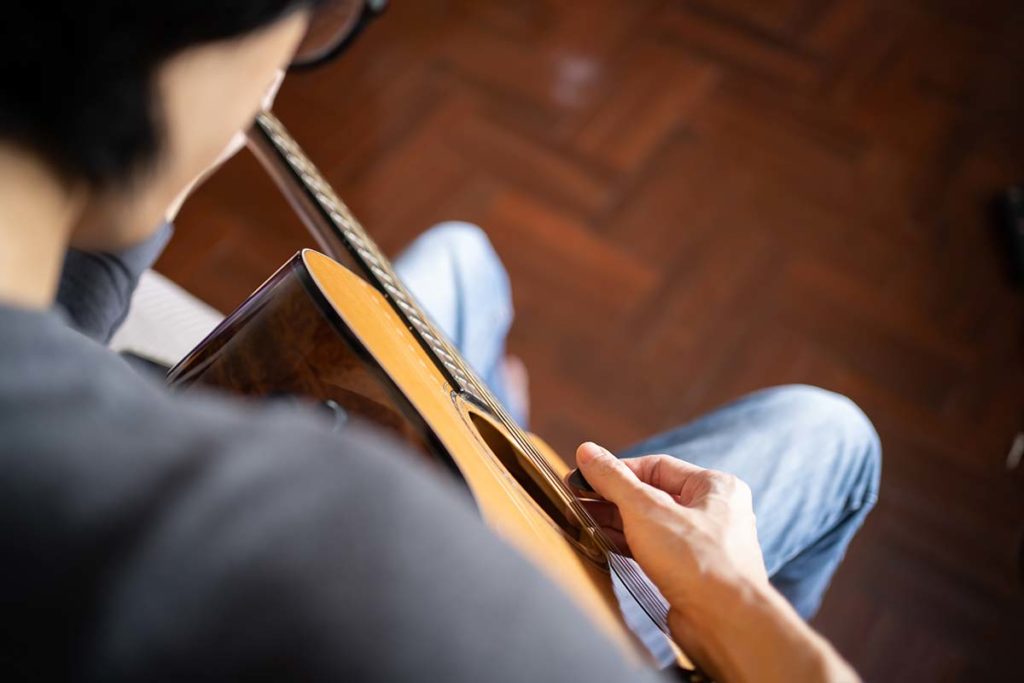If you are seeking therapy for your teen, many therapeutic interventions are available for the various mental health conditions adolescents can experience. Most parents will rely on traditional treatments, which is a perfectly reasonable approach. However, there are benefits to trying out different, non-traditional forms of therapy. Many comprehensive treatment programs incorporate newer forms of therapy and alternative medicine to deliver a holistic approach to treatment. Music therapy is a common treatment modality employed in adolescent programs, as teenagers are naturally drawn to music as a form of expression.
Music allows teens to work through the harrowing experiences they have had in their young lives. If you are concerned about your child’s mental health and are seeking treatment for them, contact Imagine Fort Collins today. Our experienced staff offers both traditional and alternative therapies to address all of your child’s needs. No matter what your teen is going through, mental health treatment could positively impact their life. If you’re interested in learning more, contact our mental health professionals at 888.291.2309 for more guidance regarding our treatment options.
What Is Teen Music Therapy?
Music therapy is the clinical use of music as a therapeutic tool to help teens begin to heal. This therapy is a well-established and widespread form of treatment. It employs various activities that allow patients to express their emotions and share their experiences freely. Some examples of music therapy activities include:
- Listening to music
- Playing instruments
- Writing songs
- Drumming
- Movement to music
- Lyric discussion
Through a teen music therapy program, your child may find new avenues to express themselves and process their experiences. This therapy provides a unique way for mental health professionals to work with teens so that they can begin to heal. Teens of any level of skill can participate.
4 Music Therapy Goals and Objectives
While the activities in music therapy are all related to music, typical examples of music therapy goals and objectives involve developing non-musical skills. When the music therapist facilitates a music therapy session, the patient may play the guitar or piano. Still, the goal is not to develop the skill of playing the instrument. Instead, the patient may explore how they can express themselves without using words.
1. Decrease Stress and Develop the Ability to Stay Calm
If the patient is feeling anxious or stressed, calming music can help to settle their mind. Simply listening to relaxing music can decrease blood pressure, lower levels of stress hormones, and slow down breathing.
2. Increase Connection with Other People
Because they are going through many life changes in a short period, teens can often feel lonely and misunderstood. Music therapy can help them connect with other people who are going through similar experiences, even without the use of verbal communication.
3. Help Teens Feel Fulfilled and Accomplished
The creative process has many positive benefits. Coming up with a new piece of music or improvising over an existing piece can create a sense of accomplishment. An approach like this can be helpful for a patient’s overall mood and self-esteem.
4. Express Emotions Safely
Teens who have suffered trauma and grief can often lash out or hurt the people closest to them, as they may lack the coping mechanisms to deal with their emotions safely. Music therapy allows them to freely express their feelings through music, exploring feelings of anger, regret, and sadness in a safe, productive space.
Combine Music Therapy with Other Treatments
A music therapy program for teens can help support primary treatment modalities. A comprehensive treatment program should consider the patient’s social, cognitive, and emotional health. Music therapy can help shore up any gaps in traditional treatment. Apart from that, it can be fun for an adolescent to participate in listening to and making music.
If you’re looking for music therapy activities for teens, look no further than Imagine Fort Collins. Our staff offers music therapy and a wide range of other treatments that work well in combination with it. These include:
- Cognitive-behavioral therapy (CBT)
- Trauma therapy
- Teen relationship counseling
- Interpersonal therapy
Learn About Music Therapy Programs at Imagine Fort Collins
Don’t hesitate to reach out to us at 888.291.2309. Our professional mental health team is standing by to help your teen today.




